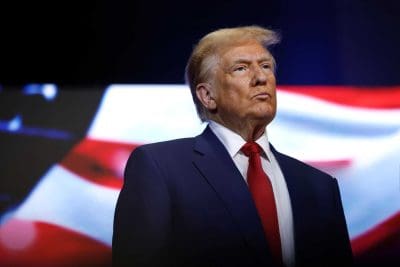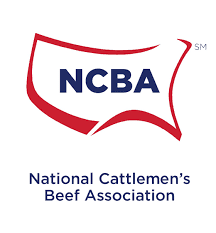Claims by US President Donald Trump and numerous media reports that Australia “bans American beef” have been branded as inaccurate by Australian red meat industry leaders.
 It is true that Australia suspended imports of US beef in 2003 when BSE was discovered in the US herd.
It is true that Australia suspended imports of US beef in 2003 when BSE was discovered in the US herd.
However Australia has since added the US to the list of approved applicant countries, for beef which would allow export of chilled and frozen beef from cattle born and raised in the US to Australia.
Australian industry representatives maintain that it was a decision by the US itself to request access to Australia for beef from cattle born and raised in Mexico and Canada but fed and processed in the US that had resulted in an additional, extended review process.
“Australia bans – and they’re wonderful people, and wonderful everything, but they ban American beef, yet we imported $3 billion of Australian beef from them just last year alone,” US president Donald Trump said during his “Liberation Day” tariff announcement which was broadcast at 7 o’clock this morning, Australian-time.
 “They won’t take any of our beef, they don’t want it because they don’t want it to affect their farmers.
“They won’t take any of our beef, they don’t want it because they don’t want it to affect their farmers.
“And you know what I don’t blame them, but we’re doing the same thing right now, starting about midnight tonight I would say.”
‘No ban on US beef to Australia’
However Australian industry leaders have disputed the claim Australia bans US beef.
“There is no ban on US beef to Australia,” the Australian Meat Industry Council stated directly in response to Mr Trump’s address.
“Australia has previously completed science-based biosecurity and food safety assessments that would allow the trade in US beef from cattle born and raised in the US,” AMIC CEO Tim Ryan said.
“The US, however, chose to not progress with this pathway, and instead has asked for access to Australia for beef made in the US from cattle also born and raised in Mexico or Canada.
“This revised request is undergoing the normal Australian science-based assessment, as is our right under global trading rules to protect our biosecurity.”
Speaking from Washington DC where he is meeting with American cattle ranching leaders this week, Cattle Australia chief executive Dr Chris Parker said the logic for the new tariff was “flawed”.
He said it failed to recognise that the US has had access to the Australian market since 2019, provided it could demonstrate its beef came from cattle born, raised and slaughtered in the US.
“These are the same conditions that the US imposes on Australian exporters – reciprocal arrangements are already in place,” Dr Parker said.
“The US industry has not been able to meet these standards and now wish to include beef from cattle born in Mexico and Canada.”
MLA managing director Michael Crowley also released a statement saying “There is currently no ban on US beef exports to Australia. Nor is there is a ban on Australian red meat exported to the United States.”
“Australia has completed science-based biosecurity and food safety assessments that would allow the trade of US beef from cattle born and raised in the US.
“However, the US has also asked for access to Australia for beef from cattle raised in Mexico or Canada and processed and exported from the US. This revised request is undergoing the normal Australian science-based assessment to protect our biosecurity.”
Import conditions currently available for US born and raised beef: DAFF
Asked to clarify the current trade access status for US chilled and frozen beef exports to Australia, and whether US beef is in fact banned by Australia, the Department of Agriculture, Fisheries and Forestry told Beef Central this morning that “import conditions into Australia are currently available for beef products sourced from cattle born, raised and slaughtered in the United States (US)”.
“However, the US has not commenced trade under these terms and has requested to expand its access to include beef products sourced from cattle from Mexico and Canada and legally imported into the US for export to Australia.”
Australia’s assessment for this additional US request was progressing, DAFF told Beef Central.
Prolonged process due to US request for Canadian, Mexican beef access
In effect, Australian industry sources have told Beef Central today, the US has had access for some time to Australia’s market for beef from US born and raised cattle, but have not taken it up, and now, at their own request, are waiting for Australia to assess the import risk of importing beef from cattle born in Mexico and Canada but processed in the US and potentially exported to Australia.
The United States has an integrated supply chain across North America, with Mexico and Canada both supplying large numbers of feeder and slaughter cattle into the US every year, in the order 1.2 million and 730,000 cattle per year respectively, according to 2023 data.
The US request for access to Australia for beef exported from the US but originating from cattle born and raised in Mexico and Canada led to the Australian Government conducting a further biosecurity assessment of that process, which is currently ongoing.
Traceability equivalence challenge
Australian beef is fully traceable for whole-of-life via the National Livestock Identification System which requires electronic identification of all processed animals, while a challenge for the US is the lack of an equivalent national traceability system to identify beef from all cattle origins, including Mexico and Canada, within the US supply chain.
Australian industry sources have previously told Beef Central that while the US may be frustrated with Australia’s progress on its market access request, the Australian industry strongly supports the Australian Government conducting thorough science-based risk assessments to meet Australia’s appropriate level of biosecurity protection as is Australia’s right under agreements in the World Trade Organization and World Organization for Animal Health.
The US “had not helped itself” by changing its scope following Australia’s initial assessment of animals born and raised in the US – this ultimately resulted in a US amendment to include animals sourced from Mexico and Canada, which had necessarily added more complexity and time required to assess risks.
US cattle industry leaders have hit out at “endless bureacratic red tape”
US cattle industry leaders see the situation differently, with the National Cattlemen’s Beef Association recently telling a US Government trade inquiry Australia had used a “myriad of sanitary concerns and endless bureaucratic red tape” for 20 years to delay the approval of US beef to the Australian market.
 In its submission the NCBA urged the Trump administration to place volume limits on Australian beef imports, and suggested considering banning Australian beef imports to the US.
In its submission the NCBA urged the Trump administration to place volume limits on Australian beef imports, and suggested considering banning Australian beef imports to the US.
“For the past few years, we have been told by the Australian government that we are in the final stages of approval, yet we continue to see delays.
“US cattle and beef do not pose a threat to Australian consumers and Australian livestock, and this is not how allies and trade partners should behave. This is a slap in the face to U.S. cattle producers and enough is enough. If the Australians will not accept our beef products, then it is only fair that we reciprocate.
“If the Australians will not accept our beef products, then it is only fair that we reciprocate.”
In his announcement this morning Mr Trump said a 10pc tariff will be imposed on Australian goods, which will include meat exports, but there was no ban on Australian red meat.

